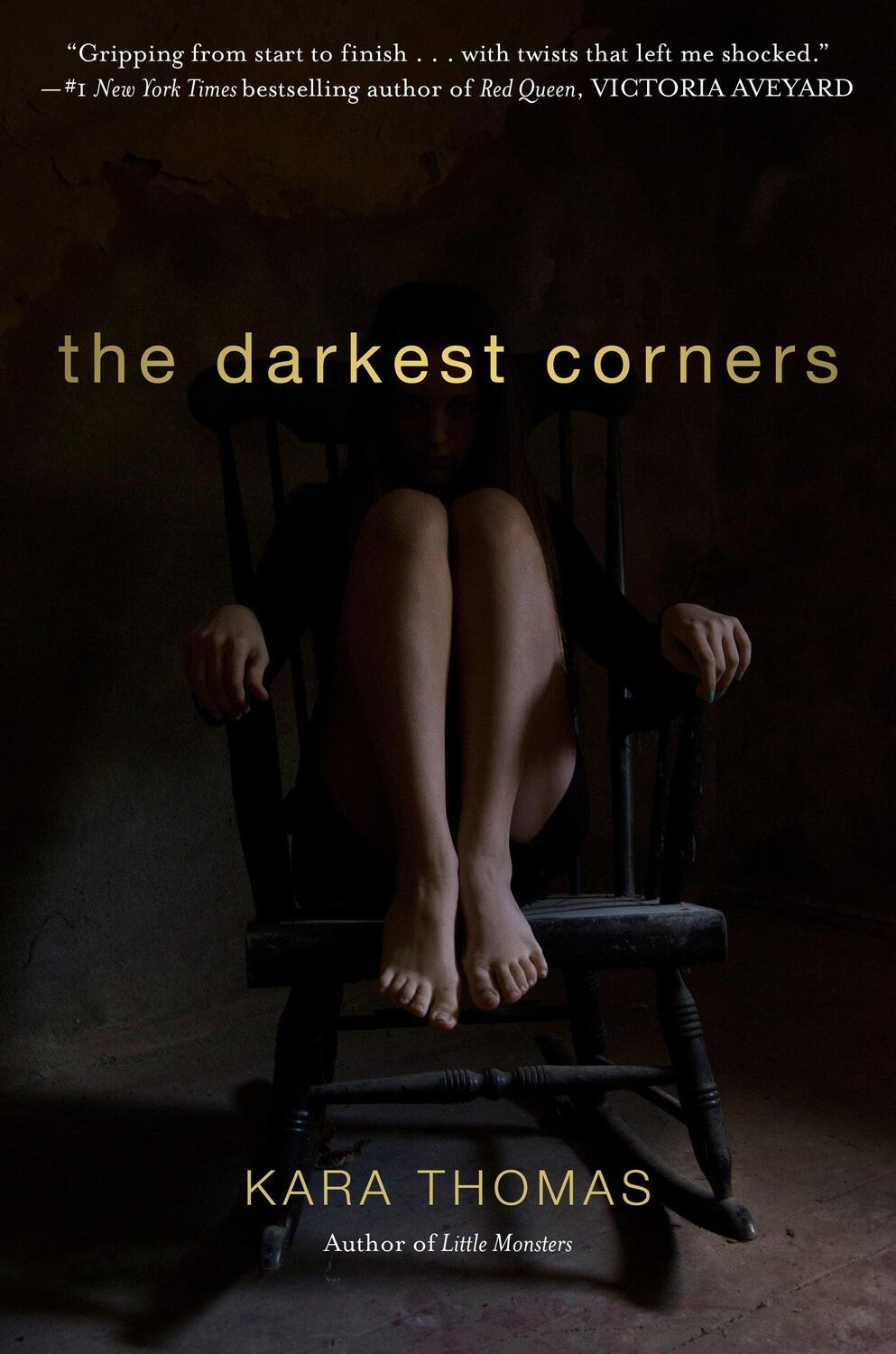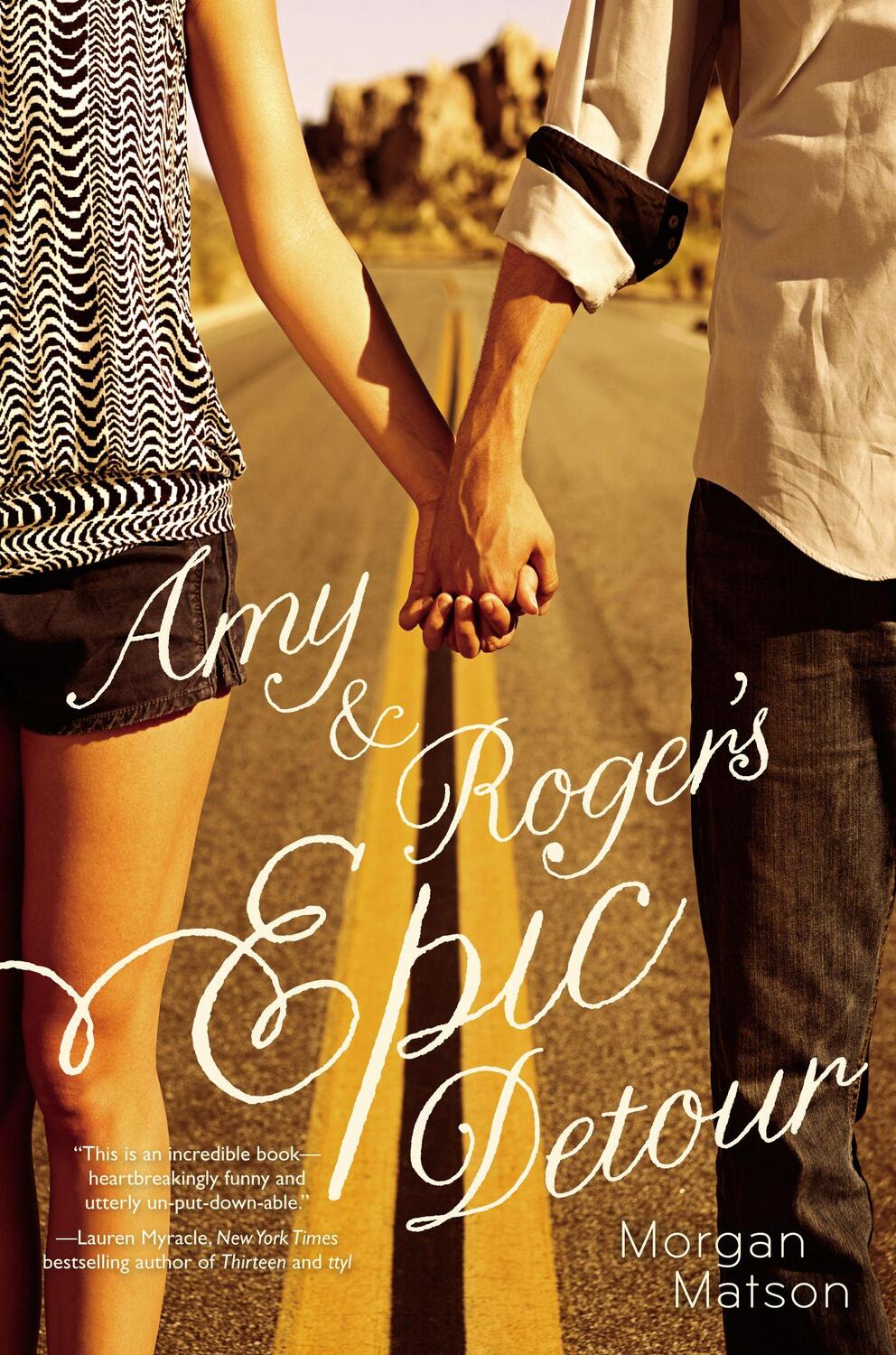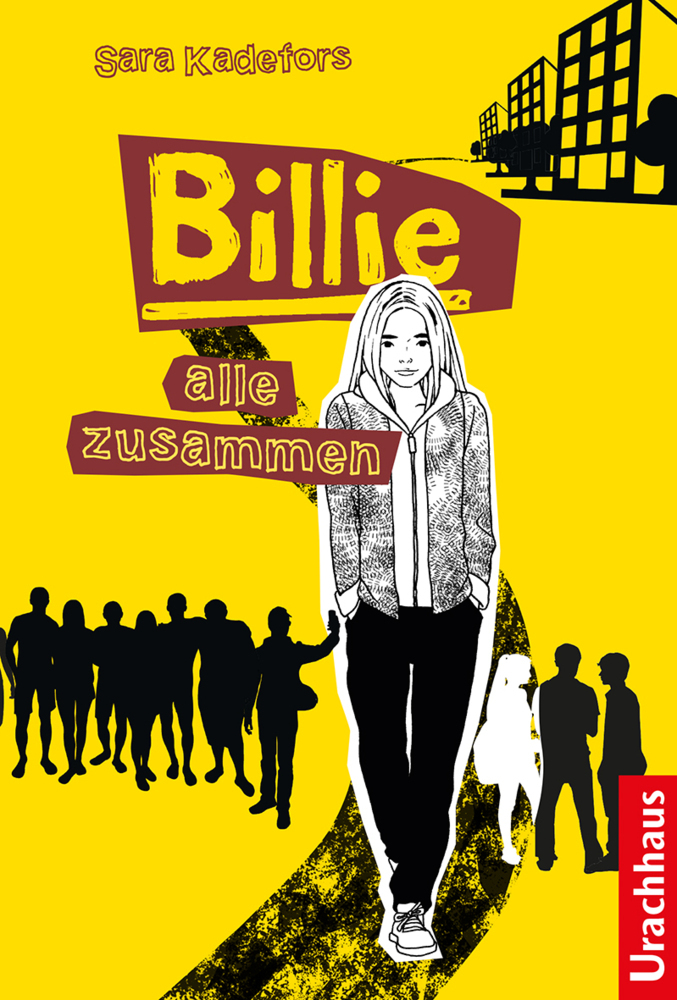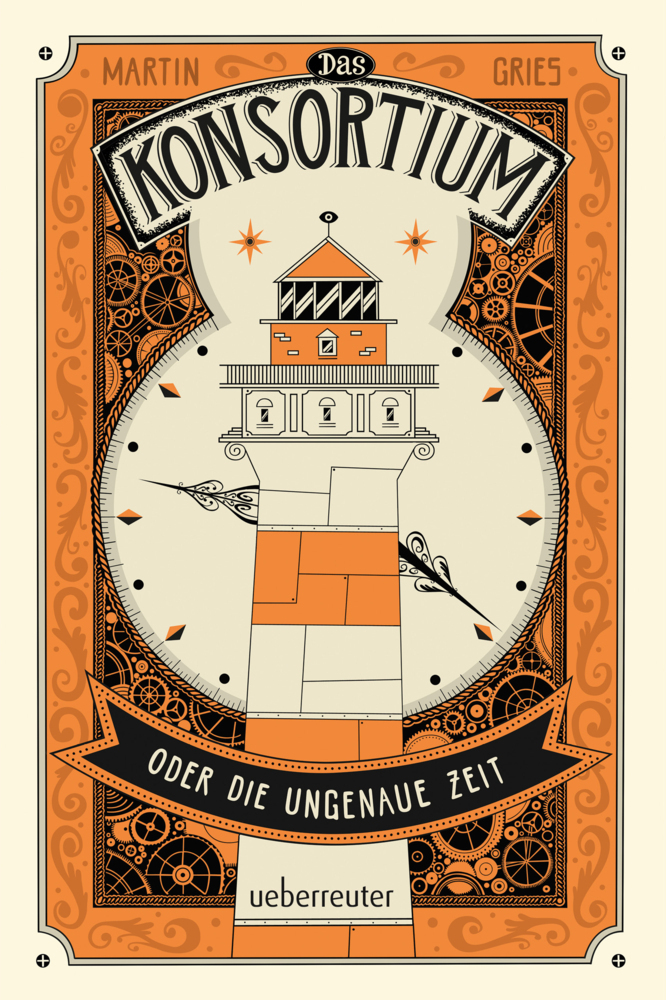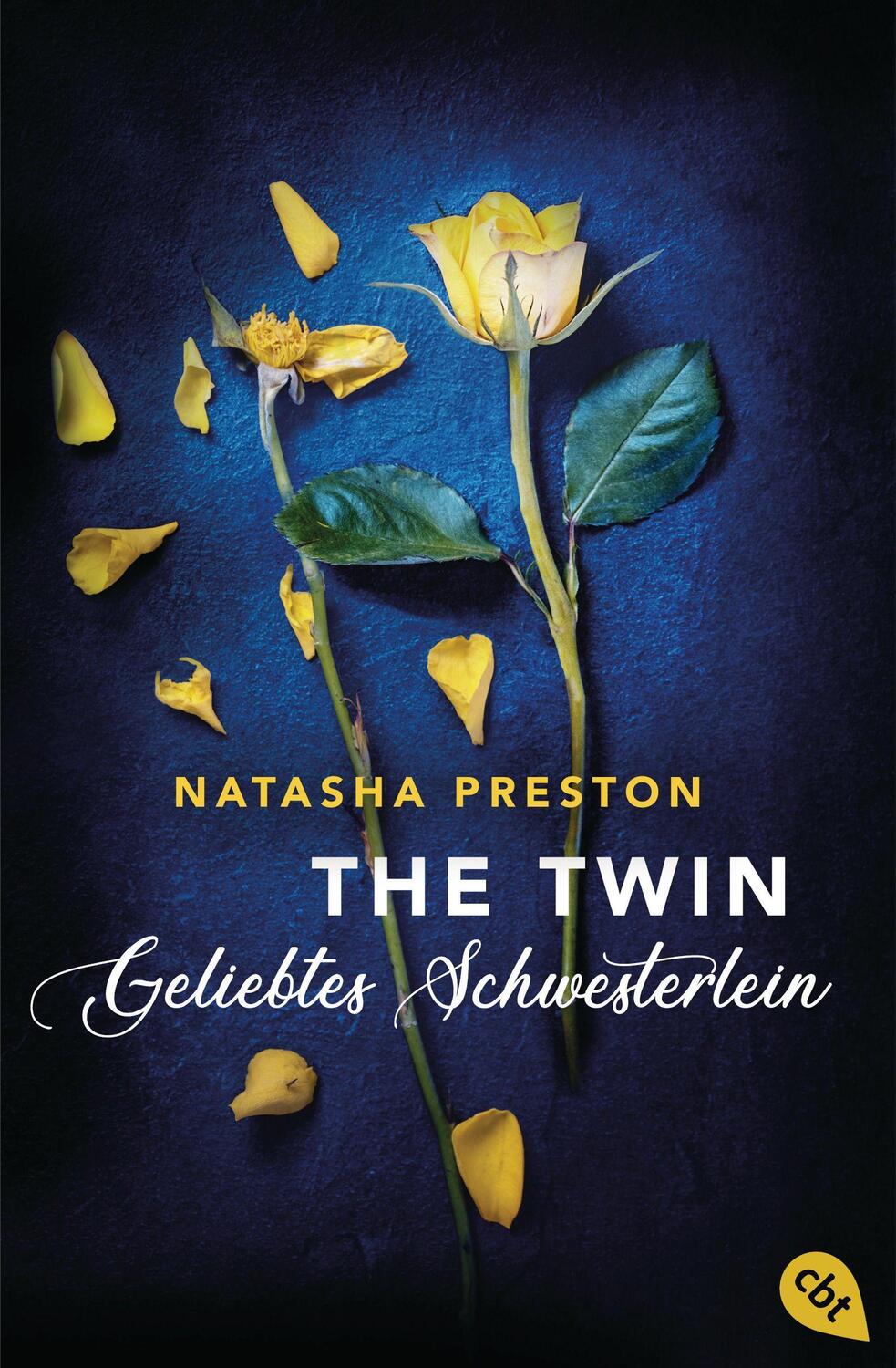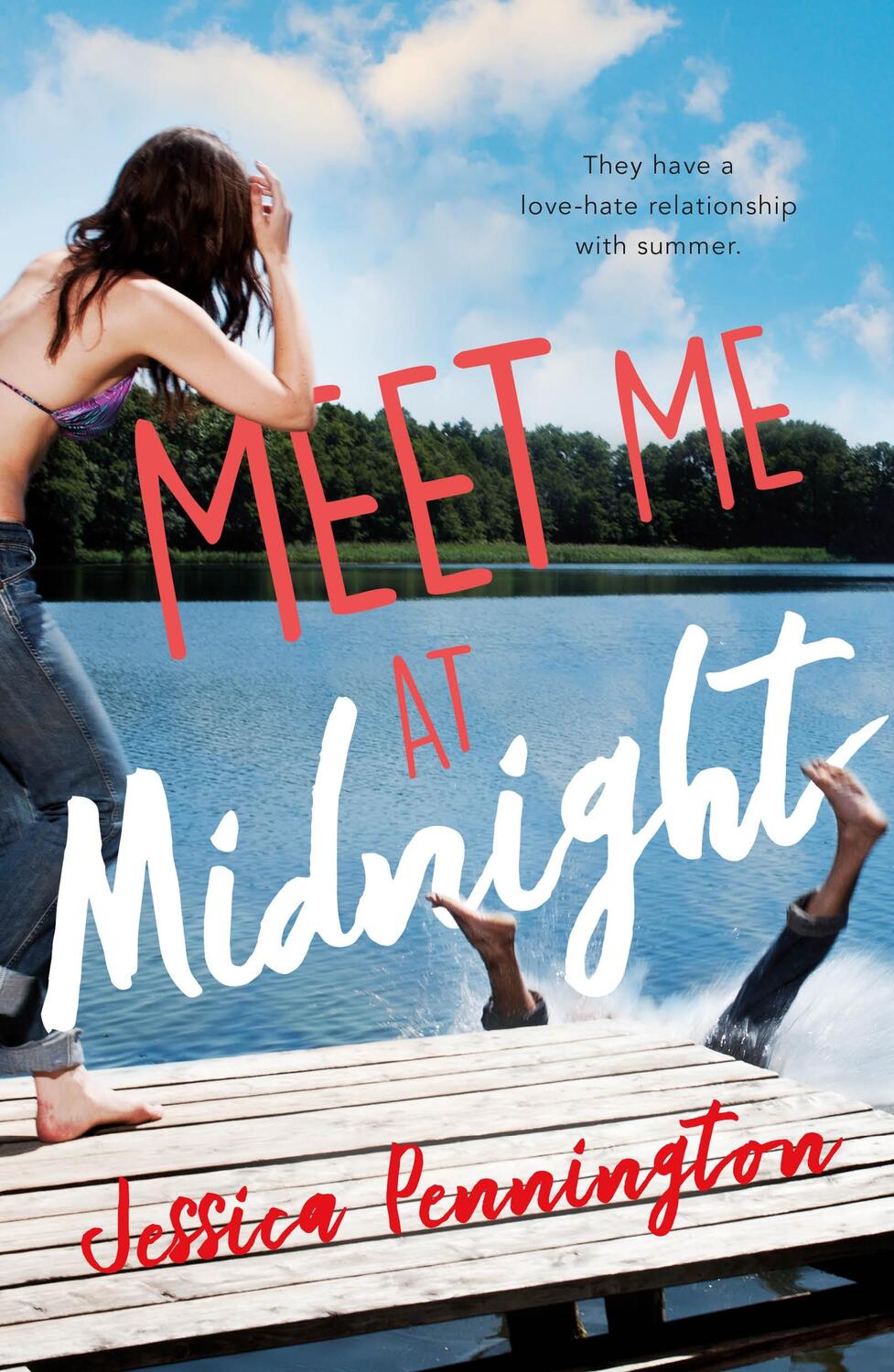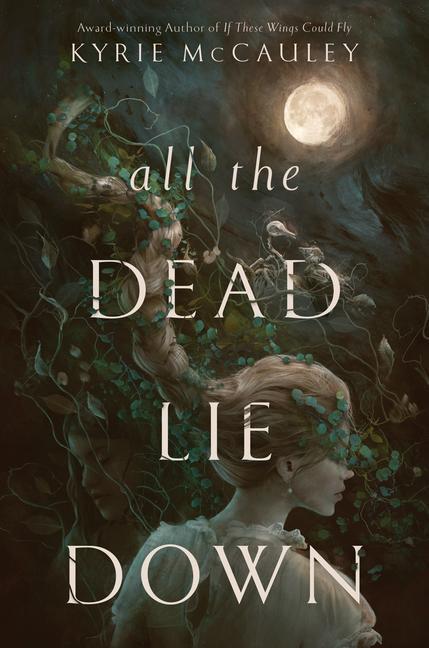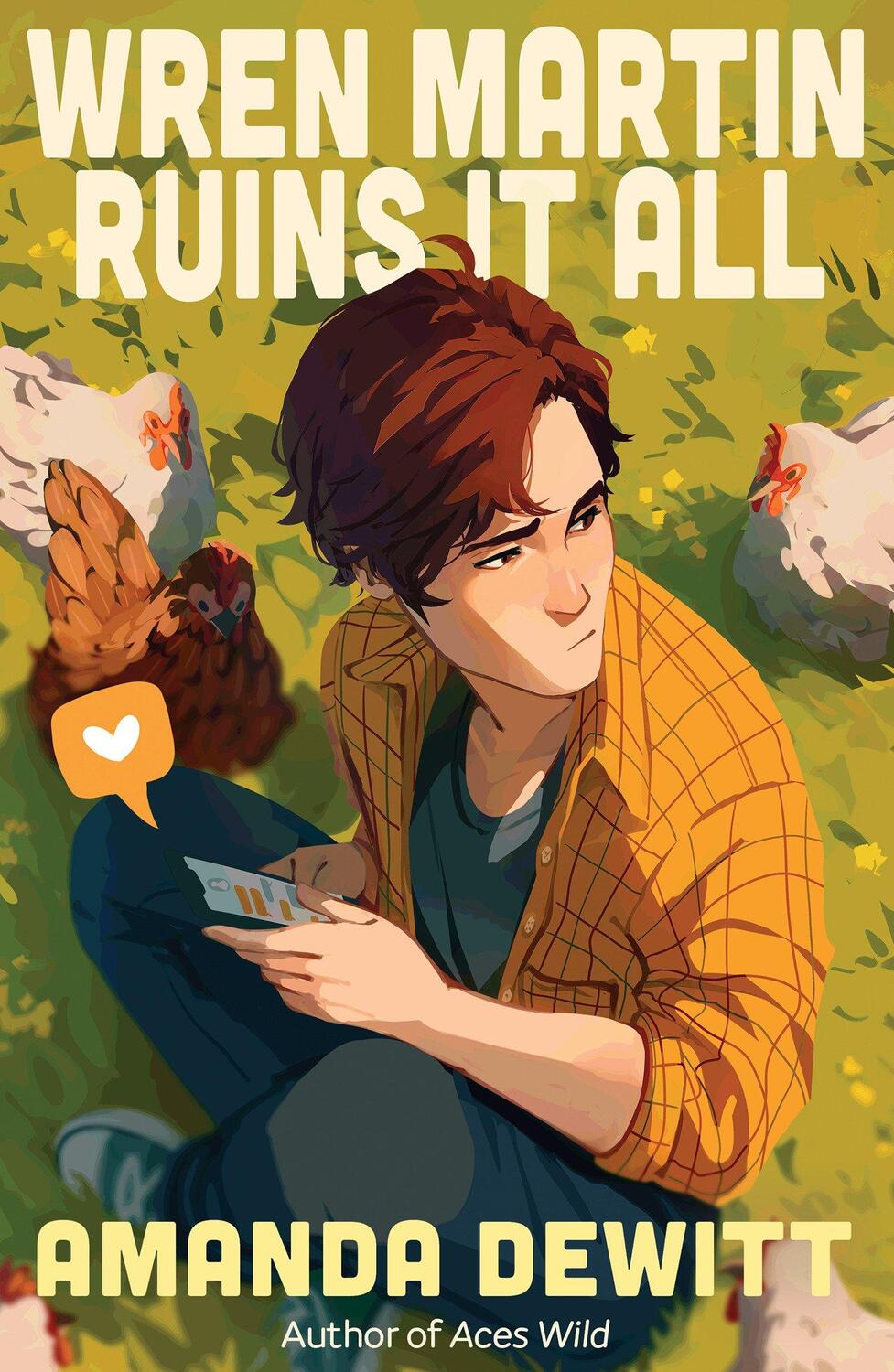Dekorationsartikel gehören nicht zum Leistungsumfang.
Sprache:
Englisch
15,40 €*
Versandkostenfrei per Post / DHL
Lieferzeit 1-2 Wochen
Kategorien:
Beschreibung
Chapter One
Hell is a two-hour layover in Atlanta.
The woman to my right has been watching me since I sat down. I can tell she’s one of those people who take the sheer fact that you’re breathing as an invitation to start up a conversation.
No eye contact. I let the words repeat in my head as I dig around for my iPod. I always keep it on me, even though it’s a model that Apple hasn’t made for seven years and the screen is cracked.
Pressure builds behind my nose. The woman stirs next to me. No eye contact. And definitely do not--
I sneeze.
Damn it.
“Bless you, honey! Hot, isn’t it?” The woman fans herself with her boarding pass. She reminds me of my gram: she’s old, but more likely to be hanging around a Clinique counter than at the community center on bingo day. I give her a noncommittal nod.
She smiles and shifts in her seat so she’s closer to my armrest. I try to see myself through her eyes: Greasy hair in a bun. Still in black pants and a black V-neck--my Chili’s uniform. Backpack wedged between my feet. I guess I look like I need mothering.
“So where you from?” she asks.
It’s a weird question for an airport. Don’t most people ask each other where they’re going?
I swallow to clear my throat. “Florida.”
She’s still fanning herself with the boarding pass, sending the smell of sweat and powder my way. “Oh, Florida. Wonderful.”
Not really. Florida is where people move to die.
“There are worse places,” I say.
I would know, because I’m headed to one of them.
I knew someone was dead when my manager told me I had a phone call. During the walk from the kitchen to her office, I convinced myself it was Gram. When I heard her voice on the other end, I thought I could float away with relief.
Then she said, “Tessa, it’s your father.”
Pancreatic cancer, she explained. Stage four. It wouldn’t have made a difference if the prison doctors had caught it earlier.
It took the warden three days to track me down. My father’s corrections officer called Gram’s house collect when I was on my way to work.
Gram said he might not make it through the night. So she picked me up from Chili’s, my backpack waiting for me on the passenger seat. She wanted to come with me, but there was no time to get clearance from her cardiologist to fly. And we both knew that the extra ticket would have been a waste of money anyway.
Glenn Lowell isn’t her son. She’s never even met the man.
I bought my ticket to Pittsburgh at the airport. It cost two hundred dollars more than it would have if I’d booked it in advance. I nearly said screw it. That’s two hundred dollars I need for books in the fall.
You’re probably wondering what kind of person would let her father die alone for two hundred dollars. But my father shot and nearly killed a convenience store owner for a lot less than that--and a carton of cigarettes.
So. It’s not that I don’t want to be there to say goodbye; it’s just that my father’s been dead to me ever since a judge sentenced him to life in prison ten years ago.
Chapter Two
Maggie Greenwood is waiting for me at the arrivals gate. She’s a few shades blonder and several pounds heavier than she was the last time I saw her.
That was almost ten years ago. I don’t like thinking about how little has changed since then. The Greenwoods are taking me in like a stray cat again. Except this time I’m well fed. I’m on the wrong side of being able to pull off skinny jeans. Probably all those dinner breaks at Chili’s.
“Oh, honey.” Maggie scoops me to her for a hug with one arm. I flinch but force myself to clasp my hands around her back. She grips my shoulders and gives me her best tragedy face, but she can’t help the smile creeping into her lips. I try to see myself through her eyes--no longer a bony, sullen little girl with hair down to her waist.
My mother never cut my hair. Now the longest I keep it is at my shoulders.
“Hi, Maggie.”
She puts an arm on the small of my back and herds me out to where she’s parked. “Callie wanted to come, but she had to get an early night.”
I nod, hoping that Maggie doesn’t sense how her daughter’s name inspires a sick feeling in my stomach.
“She has a twirling competition tomorrow morning,” Maggie says. I’m not sure who she’s trying to convince. I know it’s all bullshit and Callie wouldn’t have come if Maggie had dragged her.
“So she’s still into that?” What I really mean is, So people actually still twirl batons and call it a sport, huh? But I don’t want to be rude.
“Oh, yeah. She got a scholarship.” Maggie’s grin nearly cuts her face in half. “To East Stroudsburg. She’s thinking of majoring in exercise science.”
I know all this, of course. I know who Callie is still friends with (mostly Sabrina Hayes) and what she had for breakfast last week (cinnamon-sugar muffin from Jim’s Deli). I know how badly Callie is dying to get out of Fayette (pronounced Fay-it, population five thousand) and that she already parties harder than a college freshman.
Even though I haven’t spoken to her in ten years, I know almost everything there is to know about Callie Greenwood. Everything except the thing I desperately need to know.
Does she still think about it?
“Your grandmother told me you decided on Tampa?”
I nod and lean my head against the window.
When I told Gram I’d gotten into the University of Tampa, she said that I had better think real hard about going to college in the city. Cities chew people up and spit them out.
As Maggie gets off at the exit for Fayette, all I can think is that I’d rather be chewed up and spit out than swallowed whole.
Maggie pulls up outside a white, two-story farmhouse that was twice as big in my childhood memory. We shut the doors of the minivan, prompting the dogs next door to flip out. It’s almost one in the morning; in a few hours, Maggie’s husband, Rick, will be getting ready to start his bread delivery route. I feel bad, wondering if he’s waiting up to make sure Maggie got home okay. That’s the kind of husband he is.
My dad was the kind of husband who’d make my mom wait up, sick with worry, until he stumbled in smelling like Johnnie Walker.
The dogs quiet down once we’re on Maggie’s porch, already tired of barking. Neighborhoods in Fayette wear their emotions like people do. The Greenwoods’ neighborhood is tired, full of mostly blue-collar families who are up before the sun. The type of people who eat dinner together seven nights a week, no matter how exhausted they are.
When I think of my old neighborhood, I think of anger. Of crumbling town houses squashed together so tightly, you can see right into your neighbor’s kitchen. I think of angry old men on their porches, complaining about the cable company or the Democrats or their social security checks not arriving on time.
The Greenwoods used to live in my old neighborhood. They moved a year before I left to live with Gram, which meant I couldn’t run down the street to play with Callie like I’d been doing since I was six.
Maggie unlocks the front door, and I immediately smell the difference. I want to ask her if she misses her old house as much as I do.
But of course she doesn’t. And after what happened in that house, it’s the type of question that will definitely make me unwelcome here.
“Are you hungry?” Maggie asks, shutting the door and locking it behind her. “I know they don’t give you anything on the plane anymore. There’s some leftover lasagna.”
I shake my head. “I’m just . . . really beat.”
Maggie makes a sympathetic face, and I notice all the lines that weren’t there ten years ago. She probably thinks I’m upset about my father dying.
The Tessa she remembers would have been upset. She would have cried and screamed for her daddy like she did the day the cops broke the front door down and led him out of the house in handcuffs.
Maggie doesn’t know that the old Tessa has been replaced with a monster who just wants her father to hurry up and die so she can go home.
“Of course you are.” Maggie squeezes my shoulder. “Let’s get you to bed.”
The sun comes up the instant I fall asleep.
I really need a shower, but I don’t know where the Greenwoods keep their towels. In the old house, they had a linen closet inside the bathroom. Instead of going downstairs and asking Maggie for a towel, I splash some water on my face and pat it dry with a hand towel.
I have trouble asking people for things. I’ve been this way for as long as I can remember, but I think it got bad when Gram brought me to Florida. Before she turned her office into a bedroom for me, I slept on a pullout bed. There were no blinds on the windows, so every morning at six, the sunlight streamed in and I couldn’t fall back asleep.
I started sleeping under the pullout bed, because it was dark there. Gram didn’t catch me for more than a month. The windows in my room have blinds now, but sometimes, when I can’t sleep, I find myself crawling under the bed and staring at the bedsprings like they’re constellations.
I didn’t even bother trying to fall asleep last night. When I’m done washing my face I find some Listerine under the sink and swish a bit in my mouth. No reason to redo the bun I slept in. What’s the point? There’s no way I’ll look worse than my father.
Maggie is making French toast when I get downstairs. A coffeemaker gurgles on the counter.
“Milk or cream?” she asks, gesturing to the mug she’s left out for me. I don’t have the heart to tell her I hate coffee.
I shrug. “Either is fine.”
Maggie tilts the pan and flips a slice of bread. “I tried to get Callie up, but she’s not feeling well.”
I sit down at the kitchen table. I heard Callie sneak in...
Hell is a two-hour layover in Atlanta.
The woman to my right has been watching me since I sat down. I can tell she’s one of those people who take the sheer fact that you’re breathing as an invitation to start up a conversation.
No eye contact. I let the words repeat in my head as I dig around for my iPod. I always keep it on me, even though it’s a model that Apple hasn’t made for seven years and the screen is cracked.
Pressure builds behind my nose. The woman stirs next to me. No eye contact. And definitely do not--
I sneeze.
Damn it.
“Bless you, honey! Hot, isn’t it?” The woman fans herself with her boarding pass. She reminds me of my gram: she’s old, but more likely to be hanging around a Clinique counter than at the community center on bingo day. I give her a noncommittal nod.
She smiles and shifts in her seat so she’s closer to my armrest. I try to see myself through her eyes: Greasy hair in a bun. Still in black pants and a black V-neck--my Chili’s uniform. Backpack wedged between my feet. I guess I look like I need mothering.
“So where you from?” she asks.
It’s a weird question for an airport. Don’t most people ask each other where they’re going?
I swallow to clear my throat. “Florida.”
She’s still fanning herself with the boarding pass, sending the smell of sweat and powder my way. “Oh, Florida. Wonderful.”
Not really. Florida is where people move to die.
“There are worse places,” I say.
I would know, because I’m headed to one of them.
I knew someone was dead when my manager told me I had a phone call. During the walk from the kitchen to her office, I convinced myself it was Gram. When I heard her voice on the other end, I thought I could float away with relief.
Then she said, “Tessa, it’s your father.”
Pancreatic cancer, she explained. Stage four. It wouldn’t have made a difference if the prison doctors had caught it earlier.
It took the warden three days to track me down. My father’s corrections officer called Gram’s house collect when I was on my way to work.
Gram said he might not make it through the night. So she picked me up from Chili’s, my backpack waiting for me on the passenger seat. She wanted to come with me, but there was no time to get clearance from her cardiologist to fly. And we both knew that the extra ticket would have been a waste of money anyway.
Glenn Lowell isn’t her son. She’s never even met the man.
I bought my ticket to Pittsburgh at the airport. It cost two hundred dollars more than it would have if I’d booked it in advance. I nearly said screw it. That’s two hundred dollars I need for books in the fall.
You’re probably wondering what kind of person would let her father die alone for two hundred dollars. But my father shot and nearly killed a convenience store owner for a lot less than that--and a carton of cigarettes.
So. It’s not that I don’t want to be there to say goodbye; it’s just that my father’s been dead to me ever since a judge sentenced him to life in prison ten years ago.
Chapter Two
Maggie Greenwood is waiting for me at the arrivals gate. She’s a few shades blonder and several pounds heavier than she was the last time I saw her.
That was almost ten years ago. I don’t like thinking about how little has changed since then. The Greenwoods are taking me in like a stray cat again. Except this time I’m well fed. I’m on the wrong side of being able to pull off skinny jeans. Probably all those dinner breaks at Chili’s.
“Oh, honey.” Maggie scoops me to her for a hug with one arm. I flinch but force myself to clasp my hands around her back. She grips my shoulders and gives me her best tragedy face, but she can’t help the smile creeping into her lips. I try to see myself through her eyes--no longer a bony, sullen little girl with hair down to her waist.
My mother never cut my hair. Now the longest I keep it is at my shoulders.
“Hi, Maggie.”
She puts an arm on the small of my back and herds me out to where she’s parked. “Callie wanted to come, but she had to get an early night.”
I nod, hoping that Maggie doesn’t sense how her daughter’s name inspires a sick feeling in my stomach.
“She has a twirling competition tomorrow morning,” Maggie says. I’m not sure who she’s trying to convince. I know it’s all bullshit and Callie wouldn’t have come if Maggie had dragged her.
“So she’s still into that?” What I really mean is, So people actually still twirl batons and call it a sport, huh? But I don’t want to be rude.
“Oh, yeah. She got a scholarship.” Maggie’s grin nearly cuts her face in half. “To East Stroudsburg. She’s thinking of majoring in exercise science.”
I know all this, of course. I know who Callie is still friends with (mostly Sabrina Hayes) and what she had for breakfast last week (cinnamon-sugar muffin from Jim’s Deli). I know how badly Callie is dying to get out of Fayette (pronounced Fay-it, population five thousand) and that she already parties harder than a college freshman.
Even though I haven’t spoken to her in ten years, I know almost everything there is to know about Callie Greenwood. Everything except the thing I desperately need to know.
Does she still think about it?
“Your grandmother told me you decided on Tampa?”
I nod and lean my head against the window.
When I told Gram I’d gotten into the University of Tampa, she said that I had better think real hard about going to college in the city. Cities chew people up and spit them out.
As Maggie gets off at the exit for Fayette, all I can think is that I’d rather be chewed up and spit out than swallowed whole.
Maggie pulls up outside a white, two-story farmhouse that was twice as big in my childhood memory. We shut the doors of the minivan, prompting the dogs next door to flip out. It’s almost one in the morning; in a few hours, Maggie’s husband, Rick, will be getting ready to start his bread delivery route. I feel bad, wondering if he’s waiting up to make sure Maggie got home okay. That’s the kind of husband he is.
My dad was the kind of husband who’d make my mom wait up, sick with worry, until he stumbled in smelling like Johnnie Walker.
The dogs quiet down once we’re on Maggie’s porch, already tired of barking. Neighborhoods in Fayette wear their emotions like people do. The Greenwoods’ neighborhood is tired, full of mostly blue-collar families who are up before the sun. The type of people who eat dinner together seven nights a week, no matter how exhausted they are.
When I think of my old neighborhood, I think of anger. Of crumbling town houses squashed together so tightly, you can see right into your neighbor’s kitchen. I think of angry old men on their porches, complaining about the cable company or the Democrats or their social security checks not arriving on time.
The Greenwoods used to live in my old neighborhood. They moved a year before I left to live with Gram, which meant I couldn’t run down the street to play with Callie like I’d been doing since I was six.
Maggie unlocks the front door, and I immediately smell the difference. I want to ask her if she misses her old house as much as I do.
But of course she doesn’t. And after what happened in that house, it’s the type of question that will definitely make me unwelcome here.
“Are you hungry?” Maggie asks, shutting the door and locking it behind her. “I know they don’t give you anything on the plane anymore. There’s some leftover lasagna.”
I shake my head. “I’m just . . . really beat.”
Maggie makes a sympathetic face, and I notice all the lines that weren’t there ten years ago. She probably thinks I’m upset about my father dying.
The Tessa she remembers would have been upset. She would have cried and screamed for her daddy like she did the day the cops broke the front door down and led him out of the house in handcuffs.
Maggie doesn’t know that the old Tessa has been replaced with a monster who just wants her father to hurry up and die so she can go home.
“Of course you are.” Maggie squeezes my shoulder. “Let’s get you to bed.”
The sun comes up the instant I fall asleep.
I really need a shower, but I don’t know where the Greenwoods keep their towels. In the old house, they had a linen closet inside the bathroom. Instead of going downstairs and asking Maggie for a towel, I splash some water on my face and pat it dry with a hand towel.
I have trouble asking people for things. I’ve been this way for as long as I can remember, but I think it got bad when Gram brought me to Florida. Before she turned her office into a bedroom for me, I slept on a pullout bed. There were no blinds on the windows, so every morning at six, the sunlight streamed in and I couldn’t fall back asleep.
I started sleeping under the pullout bed, because it was dark there. Gram didn’t catch me for more than a month. The windows in my room have blinds now, but sometimes, when I can’t sleep, I find myself crawling under the bed and staring at the bedsprings like they’re constellations.
I didn’t even bother trying to fall asleep last night. When I’m done washing my face I find some Listerine under the sink and swish a bit in my mouth. No reason to redo the bun I slept in. What’s the point? There’s no way I’ll look worse than my father.
Maggie is making French toast when I get downstairs. A coffeemaker gurgles on the counter.
“Milk or cream?” she asks, gesturing to the mug she’s left out for me. I don’t have the heart to tell her I hate coffee.
I shrug. “Either is fine.”
Maggie tilts the pan and flips a slice of bread. “I tried to get Callie up, but she’s not feeling well.”
I sit down at the kitchen table. I heard Callie sneak in...
Chapter One
Hell is a two-hour layover in Atlanta.
The woman to my right has been watching me since I sat down. I can tell she’s one of those people who take the sheer fact that you’re breathing as an invitation to start up a conversation.
No eye contact. I let the words repeat in my head as I dig around for my iPod. I always keep it on me, even though it’s a model that Apple hasn’t made for seven years and the screen is cracked.
Pressure builds behind my nose. The woman stirs next to me. No eye contact. And definitely do not--
I sneeze.
Damn it.
“Bless you, honey! Hot, isn’t it?” The woman fans herself with her boarding pass. She reminds me of my gram: she’s old, but more likely to be hanging around a Clinique counter than at the community center on bingo day. I give her a noncommittal nod.
She smiles and shifts in her seat so she’s closer to my armrest. I try to see myself through her eyes: Greasy hair in a bun. Still in black pants and a black V-neck--my Chili’s uniform. Backpack wedged between my feet. I guess I look like I need mothering.
“So where you from?” she asks.
It’s a weird question for an airport. Don’t most people ask each other where they’re going?
I swallow to clear my throat. “Florida.”
She’s still fanning herself with the boarding pass, sending the smell of sweat and powder my way. “Oh, Florida. Wonderful.”
Not really. Florida is where people move to die.
“There are worse places,” I say.
I would know, because I’m headed to one of them.
I knew someone was dead when my manager told me I had a phone call. During the walk from the kitchen to her office, I convinced myself it was Gram. When I heard her voice on the other end, I thought I could float away with relief.
Then she said, “Tessa, it’s your father.”
Pancreatic cancer, she explained. Stage four. It wouldn’t have made a difference if the prison doctors had caught it earlier.
It took the warden three days to track me down. My father’s corrections officer called Gram’s house collect when I was on my way to work.
Gram said he might not make it through the night. So she picked me up from Chili’s, my backpack waiting for me on the passenger seat. She wanted to come with me, but there was no time to get clearance from her cardiologist to fly. And we both knew that the extra ticket would have been a waste of money anyway.
Glenn Lowell isn’t her son. She’s never even met the man.
I bought my ticket to Pittsburgh at the airport. It cost two hundred dollars more than it would have if I’d booked it in advance. I nearly said screw it. That’s two hundred dollars I need for books in the fall.
You’re probably wondering what kind of person would let her father die alone for two hundred dollars. But my father shot and nearly killed a convenience store owner for a lot less than that--and a carton of cigarettes.
So. It’s not that I don’t want to be there to say goodbye; it’s just that my father’s been dead to me ever since a judge sentenced him to life in prison ten years ago.
Chapter Two
Maggie Greenwood is waiting for me at the arrivals gate. She’s a few shades blonder and several pounds heavier than she was the last time I saw her.
That was almost ten years ago. I don’t like thinking about how little has changed since then. The Greenwoods are taking me in like a stray cat again. Except this time I’m well fed. I’m on the wrong side of being able to pull off skinny jeans. Probably all those dinner breaks at Chili’s.
“Oh, honey.” Maggie scoops me to her for a hug with one arm. I flinch but force myself to clasp my hands around her back. She grips my shoulders and gives me her best tragedy face, but she can’t help the smile creeping into her lips. I try to see myself through her eyes--no longer a bony, sullen little girl with hair down to her waist.
My mother never cut my hair. Now the longest I keep it is at my shoulders.
“Hi, Maggie.”
She puts an arm on the small of my back and herds me out to where she’s parked. “Callie wanted to come, but she had to get an early night.”
I nod, hoping that Maggie doesn’t sense how her daughter’s name inspires a sick feeling in my stomach.
“She has a twirling competition tomorrow morning,” Maggie says. I’m not sure who she’s trying to convince. I know it’s all bullshit and Callie wouldn’t have come if Maggie had dragged her.
“So she’s still into that?” What I really mean is, So people actually still twirl batons and call it a sport, huh? But I don’t want to be rude.
“Oh, yeah. She got a scholarship.” Maggie’s grin nearly cuts her face in half. “To East Stroudsburg. She’s thinking of majoring in exercise science.”
I know all this, of course. I know who Callie is still friends with (mostly Sabrina Hayes) and what she had for breakfast last week (cinnamon-sugar muffin from Jim’s Deli). I know how badly Callie is dying to get out of Fayette (pronounced Fay-it, population five thousand) and that she already parties harder than a college freshman.
Even though I haven’t spoken to her in ten years, I know almost everything there is to know about Callie Greenwood. Everything except the thing I desperately need to know.
Does she still think about it?
“Your grandmother told me you decided on Tampa?”
I nod and lean my head against the window.
When I told Gram I’d gotten into the University of Tampa, she said that I had better think real hard about going to college in the city. Cities chew people up and spit them out.
As Maggie gets off at the exit for Fayette, all I can think is that I’d rather be chewed up and spit out than swallowed whole.
Maggie pulls up outside a white, two-story farmhouse that was twice as big in my childhood memory. We shut the doors of the minivan, prompting the dogs next door to flip out. It’s almost one in the morning; in a few hours, Maggie’s husband, Rick, will be getting ready to start his bread delivery route. I feel bad, wondering if he’s waiting up to make sure Maggie got home okay. That’s the kind of husband he is.
My dad was the kind of husband who’d make my mom wait up, sick with worry, until he stumbled in smelling like Johnnie Walker.
The dogs quiet down once we’re on Maggie’s porch, already tired of barking. Neighborhoods in Fayette wear their emotions like people do. The Greenwoods’ neighborhood is tired, full of mostly blue-collar families who are up before the sun. The type of people who eat dinner together seven nights a week, no matter how exhausted they are.
When I think of my old neighborhood, I think of anger. Of crumbling town houses squashed together so tightly, you can see right into your neighbor’s kitchen. I think of angry old men on their porches, complaining about the cable company or the Democrats or their social security checks not arriving on time.
The Greenwoods used to live in my old neighborhood. They moved a year before I left to live with Gram, which meant I couldn’t run down the street to play with Callie like I’d been doing since I was six.
Maggie unlocks the front door, and I immediately smell the difference. I want to ask her if she misses her old house as much as I do.
But of course she doesn’t. And after what happened in that house, it’s the type of question that will definitely make me unwelcome here.
“Are you hungry?” Maggie asks, shutting the door and locking it behind her. “I know they don’t give you anything on the plane anymore. There’s some leftover lasagna.”
I shake my head. “I’m just . . . really beat.”
Maggie makes a sympathetic face, and I notice all the lines that weren’t there ten years ago. She probably thinks I’m upset about my father dying.
The Tessa she remembers would have been upset. She would have cried and screamed for her daddy like she did the day the cops broke the front door down and led him out of the house in handcuffs.
Maggie doesn’t know that the old Tessa has been replaced with a monster who just wants her father to hurry up and die so she can go home.
“Of course you are.” Maggie squeezes my shoulder. “Let’s get you to bed.”
The sun comes up the instant I fall asleep.
I really need a shower, but I don’t know where the Greenwoods keep their towels. In the old house, they had a linen closet inside the bathroom. Instead of going downstairs and asking Maggie for a towel, I splash some water on my face and pat it dry with a hand towel.
I have trouble asking people for things. I’ve been this way for as long as I can remember, but I think it got bad when Gram brought me to Florida. Before she turned her office into a bedroom for me, I slept on a pullout bed. There were no blinds on the windows, so every morning at six, the sunlight streamed in and I couldn’t fall back asleep.
I started sleeping under the pullout bed, because it was dark there. Gram didn’t catch me for more than a month. The windows in my room have blinds now, but sometimes, when I can’t sleep, I find myself crawling under the bed and staring at the bedsprings like they’re constellations.
I didn’t even bother trying to fall asleep last night. When I’m done washing my face I find some Listerine under the sink and swish a bit in my mouth. No reason to redo the bun I slept in. What’s the point? There’s no way I’ll look worse than my father.
Maggie is making French toast when I get downstairs. A coffeemaker gurgles on the counter.
“Milk or cream?” she asks, gesturing to the mug she’s left out for me. I don’t have the heart to tell her I hate coffee.
I shrug. “Either is fine.”
Maggie tilts the pan and flips a slice of bread. “I tried to get Callie up, but she’s not feeling well.”
I sit down at the kitchen table. I heard Callie sneak in...
Hell is a two-hour layover in Atlanta.
The woman to my right has been watching me since I sat down. I can tell she’s one of those people who take the sheer fact that you’re breathing as an invitation to start up a conversation.
No eye contact. I let the words repeat in my head as I dig around for my iPod. I always keep it on me, even though it’s a model that Apple hasn’t made for seven years and the screen is cracked.
Pressure builds behind my nose. The woman stirs next to me. No eye contact. And definitely do not--
I sneeze.
Damn it.
“Bless you, honey! Hot, isn’t it?” The woman fans herself with her boarding pass. She reminds me of my gram: she’s old, but more likely to be hanging around a Clinique counter than at the community center on bingo day. I give her a noncommittal nod.
She smiles and shifts in her seat so she’s closer to my armrest. I try to see myself through her eyes: Greasy hair in a bun. Still in black pants and a black V-neck--my Chili’s uniform. Backpack wedged between my feet. I guess I look like I need mothering.
“So where you from?” she asks.
It’s a weird question for an airport. Don’t most people ask each other where they’re going?
I swallow to clear my throat. “Florida.”
She’s still fanning herself with the boarding pass, sending the smell of sweat and powder my way. “Oh, Florida. Wonderful.”
Not really. Florida is where people move to die.
“There are worse places,” I say.
I would know, because I’m headed to one of them.
I knew someone was dead when my manager told me I had a phone call. During the walk from the kitchen to her office, I convinced myself it was Gram. When I heard her voice on the other end, I thought I could float away with relief.
Then she said, “Tessa, it’s your father.”
Pancreatic cancer, she explained. Stage four. It wouldn’t have made a difference if the prison doctors had caught it earlier.
It took the warden three days to track me down. My father’s corrections officer called Gram’s house collect when I was on my way to work.
Gram said he might not make it through the night. So she picked me up from Chili’s, my backpack waiting for me on the passenger seat. She wanted to come with me, but there was no time to get clearance from her cardiologist to fly. And we both knew that the extra ticket would have been a waste of money anyway.
Glenn Lowell isn’t her son. She’s never even met the man.
I bought my ticket to Pittsburgh at the airport. It cost two hundred dollars more than it would have if I’d booked it in advance. I nearly said screw it. That’s two hundred dollars I need for books in the fall.
You’re probably wondering what kind of person would let her father die alone for two hundred dollars. But my father shot and nearly killed a convenience store owner for a lot less than that--and a carton of cigarettes.
So. It’s not that I don’t want to be there to say goodbye; it’s just that my father’s been dead to me ever since a judge sentenced him to life in prison ten years ago.
Chapter Two
Maggie Greenwood is waiting for me at the arrivals gate. She’s a few shades blonder and several pounds heavier than she was the last time I saw her.
That was almost ten years ago. I don’t like thinking about how little has changed since then. The Greenwoods are taking me in like a stray cat again. Except this time I’m well fed. I’m on the wrong side of being able to pull off skinny jeans. Probably all those dinner breaks at Chili’s.
“Oh, honey.” Maggie scoops me to her for a hug with one arm. I flinch but force myself to clasp my hands around her back. She grips my shoulders and gives me her best tragedy face, but she can’t help the smile creeping into her lips. I try to see myself through her eyes--no longer a bony, sullen little girl with hair down to her waist.
My mother never cut my hair. Now the longest I keep it is at my shoulders.
“Hi, Maggie.”
She puts an arm on the small of my back and herds me out to where she’s parked. “Callie wanted to come, but she had to get an early night.”
I nod, hoping that Maggie doesn’t sense how her daughter’s name inspires a sick feeling in my stomach.
“She has a twirling competition tomorrow morning,” Maggie says. I’m not sure who she’s trying to convince. I know it’s all bullshit and Callie wouldn’t have come if Maggie had dragged her.
“So she’s still into that?” What I really mean is, So people actually still twirl batons and call it a sport, huh? But I don’t want to be rude.
“Oh, yeah. She got a scholarship.” Maggie’s grin nearly cuts her face in half. “To East Stroudsburg. She’s thinking of majoring in exercise science.”
I know all this, of course. I know who Callie is still friends with (mostly Sabrina Hayes) and what she had for breakfast last week (cinnamon-sugar muffin from Jim’s Deli). I know how badly Callie is dying to get out of Fayette (pronounced Fay-it, population five thousand) and that she already parties harder than a college freshman.
Even though I haven’t spoken to her in ten years, I know almost everything there is to know about Callie Greenwood. Everything except the thing I desperately need to know.
Does she still think about it?
“Your grandmother told me you decided on Tampa?”
I nod and lean my head against the window.
When I told Gram I’d gotten into the University of Tampa, she said that I had better think real hard about going to college in the city. Cities chew people up and spit them out.
As Maggie gets off at the exit for Fayette, all I can think is that I’d rather be chewed up and spit out than swallowed whole.
Maggie pulls up outside a white, two-story farmhouse that was twice as big in my childhood memory. We shut the doors of the minivan, prompting the dogs next door to flip out. It’s almost one in the morning; in a few hours, Maggie’s husband, Rick, will be getting ready to start his bread delivery route. I feel bad, wondering if he’s waiting up to make sure Maggie got home okay. That’s the kind of husband he is.
My dad was the kind of husband who’d make my mom wait up, sick with worry, until he stumbled in smelling like Johnnie Walker.
The dogs quiet down once we’re on Maggie’s porch, already tired of barking. Neighborhoods in Fayette wear their emotions like people do. The Greenwoods’ neighborhood is tired, full of mostly blue-collar families who are up before the sun. The type of people who eat dinner together seven nights a week, no matter how exhausted they are.
When I think of my old neighborhood, I think of anger. Of crumbling town houses squashed together so tightly, you can see right into your neighbor’s kitchen. I think of angry old men on their porches, complaining about the cable company or the Democrats or their social security checks not arriving on time.
The Greenwoods used to live in my old neighborhood. They moved a year before I left to live with Gram, which meant I couldn’t run down the street to play with Callie like I’d been doing since I was six.
Maggie unlocks the front door, and I immediately smell the difference. I want to ask her if she misses her old house as much as I do.
But of course she doesn’t. And after what happened in that house, it’s the type of question that will definitely make me unwelcome here.
“Are you hungry?” Maggie asks, shutting the door and locking it behind her. “I know they don’t give you anything on the plane anymore. There’s some leftover lasagna.”
I shake my head. “I’m just . . . really beat.”
Maggie makes a sympathetic face, and I notice all the lines that weren’t there ten years ago. She probably thinks I’m upset about my father dying.
The Tessa she remembers would have been upset. She would have cried and screamed for her daddy like she did the day the cops broke the front door down and led him out of the house in handcuffs.
Maggie doesn’t know that the old Tessa has been replaced with a monster who just wants her father to hurry up and die so she can go home.
“Of course you are.” Maggie squeezes my shoulder. “Let’s get you to bed.”
The sun comes up the instant I fall asleep.
I really need a shower, but I don’t know where the Greenwoods keep their towels. In the old house, they had a linen closet inside the bathroom. Instead of going downstairs and asking Maggie for a towel, I splash some water on my face and pat it dry with a hand towel.
I have trouble asking people for things. I’ve been this way for as long as I can remember, but I think it got bad when Gram brought me to Florida. Before she turned her office into a bedroom for me, I slept on a pullout bed. There were no blinds on the windows, so every morning at six, the sunlight streamed in and I couldn’t fall back asleep.
I started sleeping under the pullout bed, because it was dark there. Gram didn’t catch me for more than a month. The windows in my room have blinds now, but sometimes, when I can’t sleep, I find myself crawling under the bed and staring at the bedsprings like they’re constellations.
I didn’t even bother trying to fall asleep last night. When I’m done washing my face I find some Listerine under the sink and swish a bit in my mouth. No reason to redo the bun I slept in. What’s the point? There’s no way I’ll look worse than my father.
Maggie is making French toast when I get downstairs. A coffeemaker gurgles on the counter.
“Milk or cream?” she asks, gesturing to the mug she’s left out for me. I don’t have the heart to tell her I hate coffee.
I shrug. “Either is fine.”
Maggie tilts the pan and flips a slice of bread. “I tried to get Callie up, but she’s not feeling well.”
I sit down at the kitchen table. I heard Callie sneak in...
Details
| Empfohlen (bis): | 17 |
|---|---|
| Empfohlen (von): | 14 |
| Erscheinungsjahr: | 2017 |
| Medium: | Taschenbuch |
| Seiten: | 327 |
| Übersetzungstitel: | Dunkelschwester |
| Inhalt: | 327 S. |
| ISBN-13: | 9780553521481 |
| ISBN-10: | 0553521489 |
| Sprache: | Englisch |
| Einband: | Paperback |
| Autor: | Thomas, Kara |
| random house us: | Random House US |
| Maße: | 209 x 140 x 20 mm |
| Von/Mit: | Kara Thomas |
| Erscheinungsdatum: | 09.05.2017 |
| Gewicht: | 0,291 kg |
Details
| Empfohlen (bis): | 17 |
|---|---|
| Empfohlen (von): | 14 |
| Erscheinungsjahr: | 2017 |
| Medium: | Taschenbuch |
| Seiten: | 327 |
| Übersetzungstitel: | Dunkelschwester |
| Inhalt: | 327 S. |
| ISBN-13: | 9780553521481 |
| ISBN-10: | 0553521489 |
| Sprache: | Englisch |
| Einband: | Paperback |
| Autor: | Thomas, Kara |
| random house us: | Random House US |
| Maße: | 209 x 140 x 20 mm |
| Von/Mit: | Kara Thomas |
| Erscheinungsdatum: | 09.05.2017 |
| Gewicht: | 0,291 kg |
Warnhinweis

